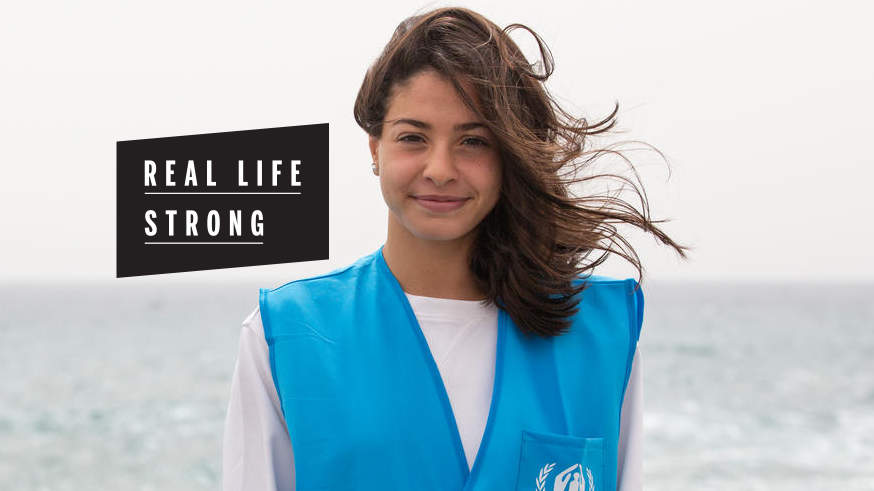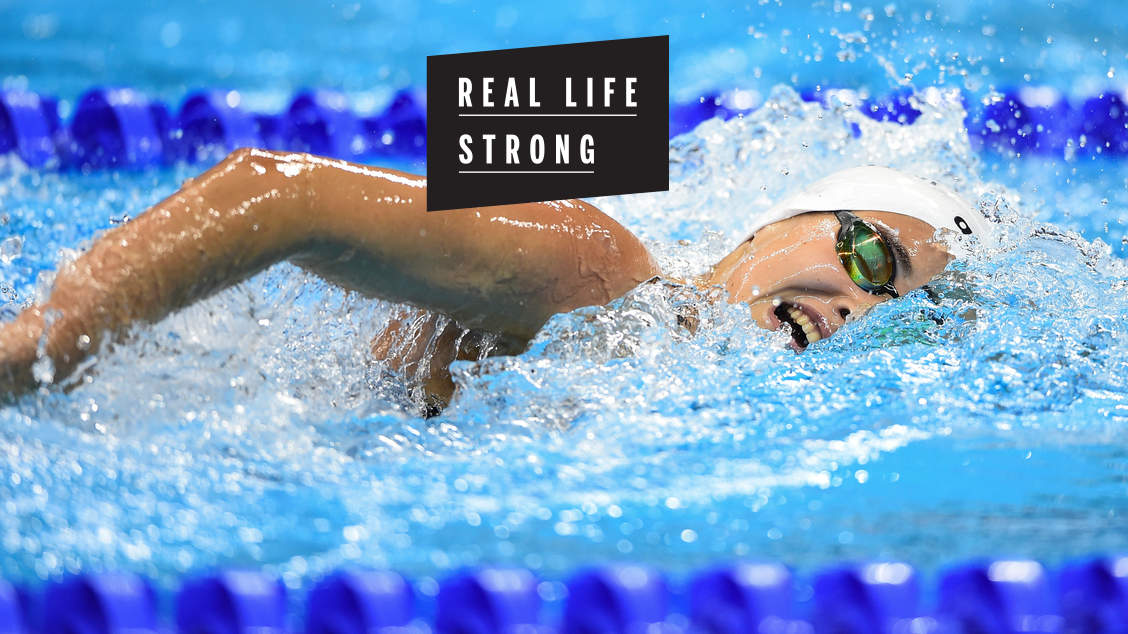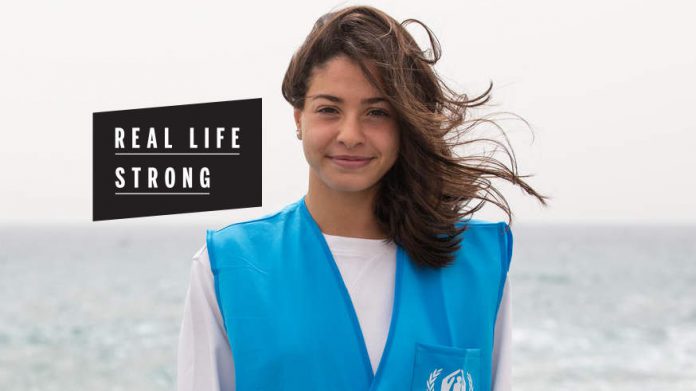
You’re on the sinking boat-what can you do? It may sound just like a hypothetical question to most people, but it would be a very real one for Yusra Mardini, a Syrian swimmer who helped rescue fellow refugees from drowning within the Mediterranean and beyond throughout a traumatic journey from Turkey to Greece.
Around 15 minutes in to the trip, the engine of the crammed, inflatable dinghy failed, and the 20 passengers, including Yusra and her older sister Sara, found themselves facing almost certain death. The majority of the others couldn’t swim, so that terrifying night it fell towards the Mardinis andtwo teenagers?to leap overboard into cold, rough waters and pushthe boat to land-a Herculean effort that took nearly 4 hours.
Yusra narrates the story in her own new book, Butterfly: From Refugee to Olympian-My Story of Rescue, Hope and Triumph. “Either we drown, or we arrive,” she recalls thinking to herself. “Just survive, stay alive another 5 minutes. Enable your body dominate. Trust it.”
Trusting her is something Yusra, now 20, has already established to learn how to do being an athlete, but it hasn’t been possible. In 2016, only months after her harrowing trip, she swam at the 2016 Summer Olympics in Rio de Janeiro, Brazil, as part of the first-ever Refugee Olympic Team.
“I didn’t accept the idea in the beginning- the thought of being a refugee,” she says now. “But then, slowly, I saw just how much people believed in me, how people respected our stories, and just how much people cheered for us. I felt I had a responsibility not just to one country, however the world.”
 (c) UNHCR with permission from the IOC
(c) UNHCR with permission from the IOC
Yusra competed in the 100-meter freestyle and the 100-meter butterfly. Even though she didn’t advance towards the semi-finals in either event, she was a indication of hope around the world, later being named the youngest-ever Goodwill Ambassador by the Un High Commissioner for Refugees, and something of Time magazine’s 30 Most Influential Teens of 2016.
But in hindsight, Yusra says, she wasn’t ready for the immense physical challenge of competing in the Olympics so right after her journey. “To be honest, I was not trusting my body system 100%,” she explained during a recent interview from Berlin, Germany, where she eventually settled and today lives. (Her entire family has been granted temporary asylum there.) “I trusted my heart a lot more than I trusted my body back then. My body wasn’t ready because of the trip- I slept on the floor; that was harmful to my back. I ate unhealthy food, I didn’t drink enough water, I slept in the cold. My body was destroyed.”
To be considered a top athlete, she adds, “you have to focus mentally, you need to take care of what you are eating, you have to keep your body healthy. Even if it’s summer and a tiny bit windy, you have to wear a hat as a swimmer, for example. You need to be fully concentrated on swimming. One different thing about what you are doing, it can be going to make you waste 1 week of training- We work years for just one race that’s one minute.”
Crippling Depression Led This Pro Tennis Player to stop at Age 22. 5 years Later, She’s Making a Comeback
Fleeing her country, Yusra wasn’t capable of taking care of herself the way in which she’d been brought up to in Damascus. Together with her sister, she began training with their father, a swimming coach, in the chronilogical age of 3. The swimming pool was his kingdom. “He was the king, and that we were like the princesses,” Yusra says, but both mom and dad “taught us how to be strong, how you can dream, to mind our very own business and concentrate on our goals.”
Their father, particularly, used a tough-love approach, treating them “like soldiers,” at times. “I think he only agreed to be trying to protect us,” Yusra?says. “He was afraid we’d venture out in to the normal community and see how people would treat us, because i was girls, and it is hard within our community in Syria-it’s difficult to be an independent woman.”
In 2011, Yusra?was 13 years of age when war broke out in Syria. Suddenly, her routine was upended, and her family’s kingdom-the pool-was no more a safe space. “It was dangerous to train,” she says. “There were bomb attacks in the pool- Some people died in the football grounds, also it was really hard because we had to operate out of the pool, visit the cabins and wait there. The coaches were losing it, my mother was calling.”
Her family’s home was destroyed in a massacre in 2012, after many years of more violence, in August of 2015, Yusra and her sister finally playing two relatives along with a family friend, flying from Damascus to Beirut, Lebanon, and then to Istanbul, where they signed up with a group of smugglers and other refugees to begin their now-infamous escape.
Nice Nailantei Leng’ete Escaped Genital Mutilation as a Girl-Now Her Mission Is to End the Ritual
Today, Yusra can’t believe the storyline herself. “I don’t know how I got the courage to do all that,” says the athlete, who’s currently training for the Tokyo 2020 Summer Games, swimming 20 hours a week and going to the gym. She has her eye on the future, but she will not help but think of the home she left out. “It is difficult for me personally because of what’s happening in Syria, and that i can’t go back to my country,” she says.
For now, Yusra is enjoyingBerlin. “People are very nice. I like the culture here. People are helping me using the language, and my schedule is full.”
Does she possess a favorite word in German? “Glcklich,” she says. “It means happy.”


































